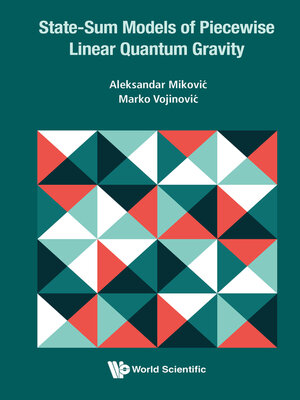
Sign up to save your library
With an OverDrive account, you can save your favorite libraries for at-a-glance information about availability. Find out more about OverDrive accounts.
Find this title in Libby, the library reading app by OverDrive.



Search for a digital library with this title
Title found at these libraries:
| Library Name | Distance |
|---|---|
| Loading... |
This book gives a description of state-sum quantum gravity models which are based on triangulations of a smooth spacetime manifold. It contains detailed descriptions of Regge quantum gravity, spin-foam models and spin-cube models. Some other similar models, like the dynamical triangulations models, are only briefly described, since the sum over the spacetime triangulations is outside the scope of this book.The book also contains a detailed description of the approach where the piecewise linear (PL) manifold corresponding to a smooth manifold triangulation is considered as the basic structure of the spacetime. Hence the PL structure is not an auxiliary tool used to define the gravitational path integral for a smooth spacetime, but it is taken as a physical property of the spacetime. Consequently, it is straightforward to construct a finite gravitational path integral. Another consequence is that the problems of determination of the classical limit and how to calculate the quantum corrections can be solved by using the effective action method. The smooth manifold limit problem is then replaced by the problem of a smooth manifold approximation for the effective action, which can be obtained by using the standard quantum field theory with a physical cutoff.Some physical effects of a PL spacetime quantum gravity theory are also described, one of which is that the cosmological constant spectrum contains the observed value.A short exposition of higher gauge theory is also given, which is a promising way to generalize a gauge symmetry by using the concept of a 2-group. A 2-group is a categorical generalization of a group, and by using this approach one can construct the spin-cube models of quantum gravity.







